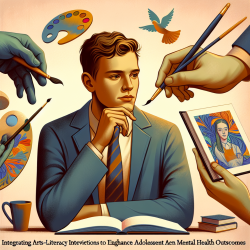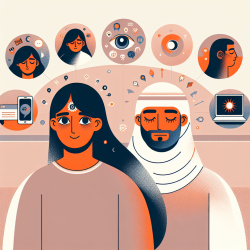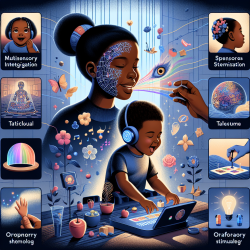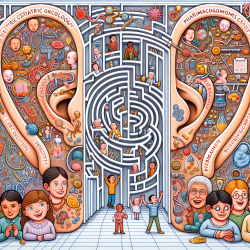Introduction
Adolescent mental health is a critical area of concern, particularly in low-resource settings where access to traditional mental health services is limited. The recent study titled "An arts-literacy intervention for adolescent depression and anxiety symptoms: outcomes of a randomized controlled trial of Pre-Texts with Kenyan adolescents" provides compelling evidence on the efficacy of arts-based interventions in addressing these challenges.
Understanding the Pre-Texts Intervention
The Pre-Texts intervention is an innovative arts-literacy program designed to reduce symptoms of depression and anxiety among adolescents. Conducted in Kenyan high schools, the study involved 235 students aged 13-19, who participated in group sessions facilitated by trained lay-providers. The intervention utilized texts from various disciplines to inspire art-making, followed by collective reflection on the interpretation process.
Key Findings
- Reduction in Symptoms: The study demonstrated significant reductions in depression (d = 0.52) and anxiety (d = 0.51) symptoms at a 1-month follow-up compared to a control group.
- Effectiveness for Elevated Symptoms: In participants with elevated symptoms, Pre-Texts showed even greater reductions in depression (d = 1.10) and anxiety (d = 0.54).
- Scalability and Accessibility: Delivered by lay-providers, the intervention is scalable and accessible, making it a viable option for resource-limited settings.
Implications for Practitioners
For practitioners in speech language pathology and related fields, integrating arts-literacy interventions like Pre-Texts can offer a non-stigmatizing, cost-effective approach to improving adolescent mental health. The program's structure encourages critical thinking, creativity, and emotional expression, which are vital components in therapeutic settings.
Encouraging Further Research
While the study provides promising results, further research with larger sample sizes and extended follow-ups is necessary to assess the long-term sustainability of these effects. Practitioners are encouraged to explore similar interventions and contribute to the growing body of evidence supporting arts-based therapeutic approaches.
Conclusion
Incorporating arts-literacy interventions into school-based therapy programs can significantly enhance mental health outcomes for adolescents. By leveraging creative expression and cultural engagement, practitioners can offer effective, scalable solutions to bridge the mental health treatment gap in resource-constrained settings.
To read the original research paper, please follow this link: An arts-literacy intervention for adolescent depression and anxiety symptoms: outcomes of a randomised controlled trial of Pre-Texts with Kenyan adolescents.










